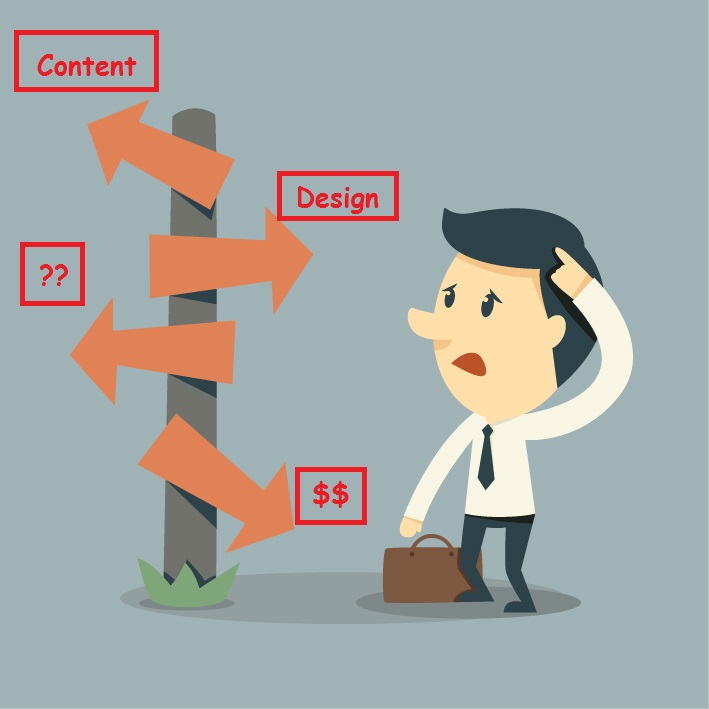There is a common question on many webmaster forums asking, “What things can make a website great? What are the elements for a great website?” The answer to this question can be found by looking at many great website designs that have incorporated best practices for a better user experience. You can now find many resources on this topic regarding tips from very skilled webmasters experienced in creating popular websites with top-notch webpages.
At first, the answer for creating a great website was quite simple: “Good, relevant and unique web content,” but nowadays, many more considerations must be incorporated into your webpages if you want to create a great website. Remember that website design methods are dynamic and ever-changing. Take a look at these basic key elements for creating a popular and user-friendly website. Below are some important elements for a great website:
- Trustworthy and Unique Content
Original and unique content is considered the heart of a great website. Web content development is the most important item you should focus on. You should obviously keep your web content new, original, and trustworthy. If people find trustworthy, new, and interesting content and actually learn something, they will visit the website willingly.
The Internet is an ocean of useful information, data, and entertainment. People mainly get on the Internet to gather information, so your content should be informative. Also, keep the content information up-to-date. If your website offers credible information, people will be more interested in visiting your website, will bookmark it, and will come back later to read more. So, the bottom line is: “Unique content is primary element for making a good website.”
- Content Targeted to Your Audience
Before designing the website, you should have an idea about the target audience. That will make it easier to create and present website content. You should create your own niche for what you specialize in. Find the demand for your niche on the Internet market, then try to fulfill it through your website.
- Browser Independent Content
If you use dynamic HTML features built for a specific browser, most of the time your website is not going to appear the same in other browsers, which may cause you to lose traffic on your website. If standard HTML code format is used, your site’s appearance will be uniform across all web browsers. It is recommended that you make your website browser-independent so that it can be easily viewed from any browser, even on a phone. Before submitting your website, test it on different browsers.
- Short Loading Times
Design your website around the best way to minimize loading time. Extended loading time is a common turnoff to users. Your site needs to load fast, even if the user has a low Internet bandwidth.
- Domain Name
When you register your domain name, choose a catchy and easily memorable name. It should be as short as possible and represent your business type. Keep in mind when choosing a domain name that your domain name may become your own brand one day.
- Interlinking Pages
Interlinking between web pages is important for your website. Your website will get a higher ranking in search engine results if there is more links between pages and links from another website to your webpages.
- Minimum Graphics
Search engine crawlers crawl your site, indexing your pages in their database. Search crawlers give more priority to text content, and then to graphics. Using more graphics tends to cause high loading times.
- Site Map
Your website should be well organized, and it should have a site map that helps the users see an overall outline of the full website. It also helps search engine crawlers to better index your webpages.
- Easily Navigable
Your website should be user-friendly and should be easy to navigate. When choosing colors, make sure not to use colors that are too reflecting or too mild on the users eyes. Make web page access features simple and user-friendly so that the users are able to easily navigate from one page to another.
- Search Engine Optimized
The most vital part of any website is search engine optimization (SEO). Though a site may be really good, without good optimization for a search engine, the ranking will not be good in the search results. Search engine optimization techniques will help make your web content more visible and will attract more traffic on your website.
All of these factors combined will help you to design and develop a great website. But remember that all of these factors yet may take time to bring satisfactory traffic to your website



